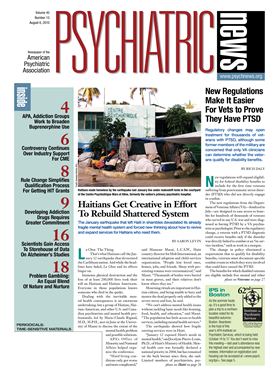Fifty-one Congressional representatives have registered their “strong opposition” to efforts by the managed behavioral health care industry to obstruct implementation of the mental health parity act.
In a letter to the secretaries of the departments of Labor, Treasury, and Health and Human Services, the 51 members of the House of Representatives said the managed behavioral health care industry was “seeking to erode the protections for consumers” provided by the Paul Wellstone and Pete Domenici Mental Health and Addictions Equity Act of 2008.
The letter was an unusually strongly worded response to objections raised by managed behavioral health care organizations (MBHOs) to the government's interim final rule, issued in February, providing regulatory guidance on the implementation of the parity law. The rule—which established a broad interpretation of the law, prohibiting a number of practices long used by the industry to manage mental health benefits—was the target of a lawsuit filed by three MBHOs (Psychiatric News, May 7). The lawsuit was later dismissed (Psychiatric News, July 16).
The representatives said in their letter that the industry's objections to the interim final rule “are baseless and seek only to protect the companies' bottom lines—not patients' well-being.”
They added, “We strongly believe that the rule-making process should not be employed as a vehicle to revive discrimination, as insurance companies are seeking to do simply because it suits their business interests.”
The congressional letter was hailed by APA and other mental health advocacy groups. In a memorandum to the APA Board of Trustees and the Board of Directors of APAPAC, APA's political action committee, Nicholas Meyers, director of APA's Department of Government Relations, drew attention to APAPAC's role in supporting a number of the signers.
“Many of the members of Congress who signed this letter have long been supported by APAPAC, proving once again that psychiatry's political voice is strong and effective as we continue efforts to elect candidates committed to our members and the patients for whom they care,” Meyers said in a written statement.
In comments to Psychiatric News, Meyers added, “The congressional letter echoes APA's own comments and recommendations. It's very timely and demonstrates strong support for key policy issues impacting patient access to care.”
The members of Congress also registered their protest over recent reports that the industry was now using especially restrictive practices to reduce access to mental health care. “Insurance companies are putting patients through restrictive and burdensome concurrent review requirements, which require clinicians to go through repeated and time-consuming interviews about patients' progress in treatment before the insurance company will approve further treatment,” the representatives charged.
“The basic fact that mental illnesses and addiction disorders can be treated and managed like other medical conditions has been accepted for many years in the medical community,” they wrote. “We cannot allow another day to go by where these illnesses are cloaked in darkness and shame. We cannot allow insurance companies to make claims that will continue those days.
“We encourage agencies involved in the implementation of [the parity law] to fully evaluate and reject claims by insurance companies seeking to weaken the protections intended by Congress and preserve the protections outlined in the [parity law's] interim final rule,” the legislators wrote.
